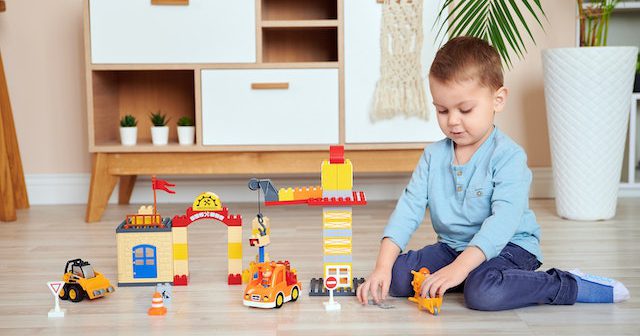Children’s hobbies are an important part of growing up and learning. It’s essential that children develop a healthy relationship with their hobbies to thrive socially, emotionally, and academically. Fortunately, there are a few simple tips that can help parents foster a relationship between their kids and their hobbies.
Whether it’s sports, art, music, or any other type of hobby, these seven tips can help parents encourage their children to develop a healthy relationship with their hobbies:
Make Safety a Priority
Hobby activities, especially those that involve physical activity or working with tools and machinery, should always have safety as the primary concern.
Take the time to research hobby safety resources and visit a hobby store for advice on equipment and protective gear for your child’s hobby. Make sure your child understands the rules for any hobby activity so that they know how to stay safe. Of course, always supervise your child when participating in hobby activities.
With over thousands of hobby stores, children are now getting access to tools, books, and other materials with which they can explore the world around them. In the U.S. alone, hobby stores generate an estimated $2.5 billion in annual sales, a figure that continues to grow with each passing year.
Meanwhile, in Australia, it is estimated that the country’s hobby stores bring in nearly $3 billion a year, with a wealth of hobby store in Newcastle, Sydney, Perth, and other cities, offering all kinds of toys, games, and model items.
So, with the continuous rise and accessibility of various hobby materials, it’s better to stay on the safe side and inspect the tools your kids need. From protective gear to the toy parts, ensure that they are up to standard, of high quality, and age-appropriate for your child.
Encourage Balanced Participation
Children should be encouraged to develop various interests and hobbies instead of focusing exclusively on one activity. It will help ensure they don’t become too attached or overwhelmed with just one hobby.
Also, ensure that the activity is appropriate for your child’s age and abilities. Limit the amount of time your child spends on any hobby so that they have plenty of time for other activities and responsibilities.
You can’t just tell your child to “go have fun” and expect them to stick with a hobby. It’s important to show an active interest in the activity and be supportive of their efforts. It can include attending games, providing supplies, or helping with practice sessions.
Support Your Child’s Hobby
It’s important to show your child that you value their hobby pursuits. Make sure you support helping with hobby supplies, activities, or events. Keep up with the hobby by attending gatherings or reading up on new developments.
Most importantly, celebrate your child’s hobby accomplishments. Doing so will show them that you recognize their hobby and the hard work they put into it. It will motivate them to stay passionate about their hobby.
Some ways to support your child’s hobby are by helping them explore different places to participate in their hobbies, attending competitions or events with them, and cheerleading for their achievements. You can also provide resources such as books or websites to help provide more information about their hobby.
Create an Environment for Hobby Growth
Supporting your child’s hobby means more than just providing supplies and celebrating accomplishments. It also means creating an environment that encourages hobby growth. To do this, look for opportunities to enrich the hobby experience, such as activities or events that feature hobby experts or hobby-related materials.
You can also provide hobby-related books or toys to help your child develop their hobby. By simply encouraging your child to explore their hobby further and learn more about it, you can help them create an environment that helps keep their interest in the activity alive.
Focus On Process, Not Results
When children get too focused on results, it can lead to frustration or disappointment when they don’t reach their goals. Help them recognize that hobbies should be enjoyable and that the process is just as necessary. It will help them see their hobby as something they look forward to rather than just another chore.
An emphasis on process also teaches children the value of delayed gratification and gives them a sense of accomplishment when they become more experienced in the hobby. Additionally, it helps them recognize that sometimes there will be setbacks and challenges, but with practice and perseverance, they can reach their goals.
Provide Positive Reinforcement
One of the best ways to support your child’s hobby is by providing positive reinforcement for their efforts.
Whether it’s a hug after a game or some words of encouragement, showing that you recognize and appreciate their hard work will help them stay enthusiastic about their hobby and feel more motivated to keep at it.
Whatever approach you take, make sure to emphasize the fun in their hobby and always offer constructive feedback when necessary. Doing this will help foster an environment of growth and learning around your child’s hobby, and they’ll get more out of it in the long run.
Set Realistic Goals
It’s important to set realistic goals for your child’s hobby. Help them identify achievable targets and provide guidance on how they can reach them. It will give your child something to strive for, help keep their enthusiasm up, and inspire them to take the necessary steps to progress in their chosen hobby.
You should also make sure to keep their goals realistic and achievable in order to avoid frustration or disappointment. If they’re having trouble meeting their goals, provide guidance and support to help them get back on track. It will show your child that you believe in them and help keep them motivated.
Final Thoughts
Children’s hobbies are an important part of their development, and parents should help their kids develop healthy relationships with them. Encouraging balanced participation, focusing on the process instead of results, setting realistic expectations, encouraging exploration, and being supportive will all go a long way in helping your child create a positive relationship with their hobbies.





It will be simpler to integrate testing regularly to raise the caliber of your service if you conduct regular testing, in my opinion. Choosing manual cross browser testing will be the greatest choice in this situation because they can assist you in determining the best course of action for your program. In light of this, I believe that this is a wise and excellent choice.